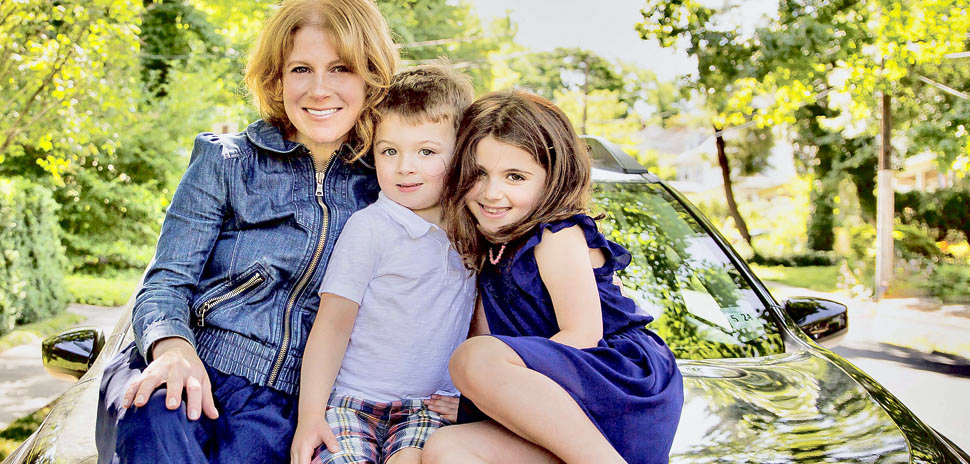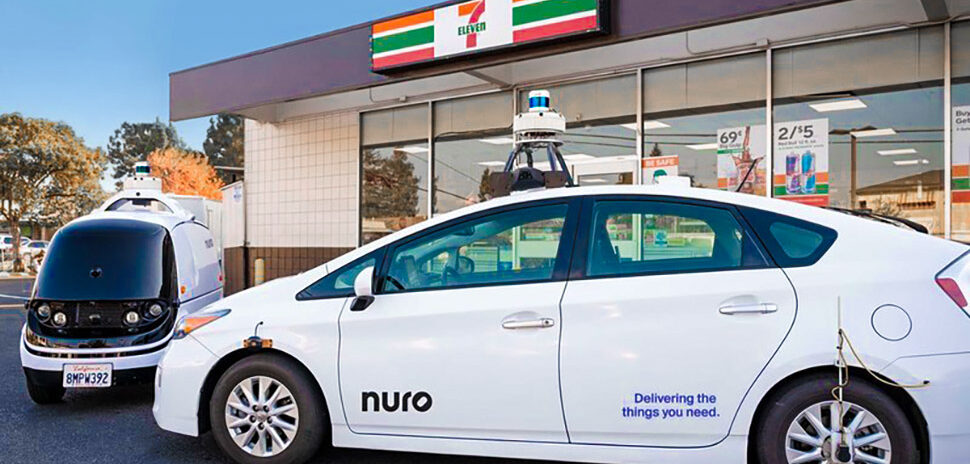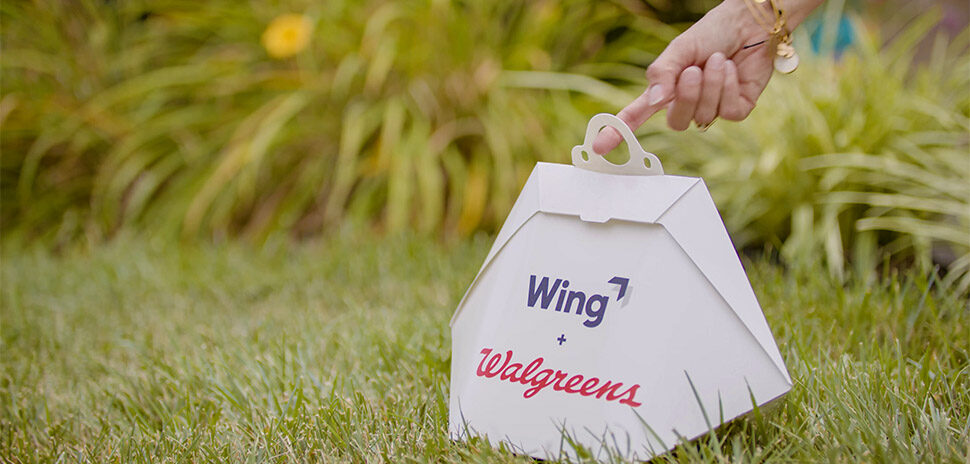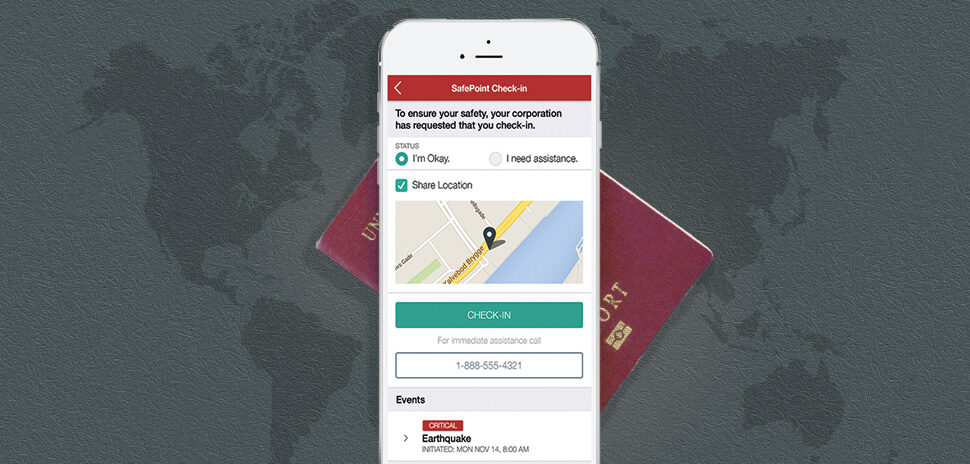Getting kids to and from school, after-school activities, and sports isn’t easy to navigate—especially for working parents. Rebecca Lock, founder and CEO of Kidcaboo, built her “famtech” company after facing this challenge head-on.
Kidcaboo is a tech-enabled children’s rideshare service—think Uber or Lyft, but for kids—that soft-launched in Dallas, Houston, and Austin last month from its base in New Jersey. Parents can schedule rides via the Kidcaboo Parent app.
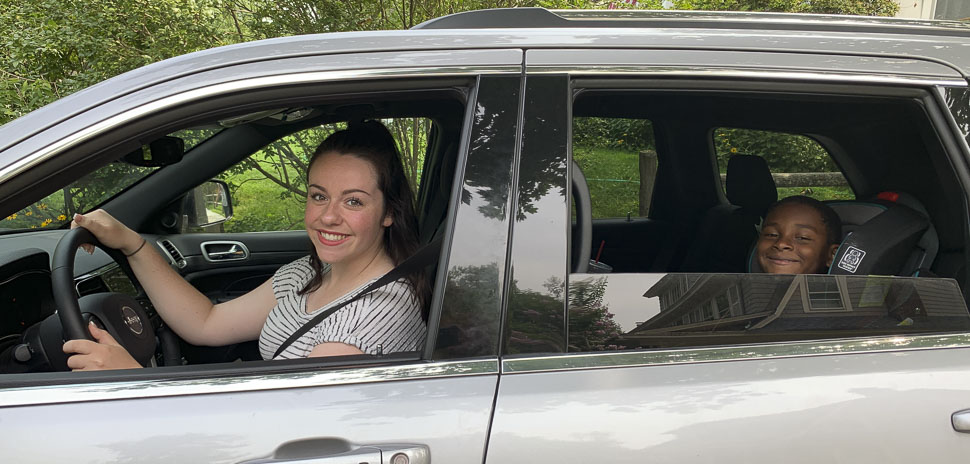
[Photo via Kidcaboo]
“School buses and after-school programs are unsustainable band-aid solutions,” Lock said in a statement. “Kidcaboo’s mission is to create a sustainable, evolvable ecosystem that allows family life to work, gives parents the freedom to perform and focus fully while at work, and allows children to thrive with assistance that doesn’t tie a parent to their home.”
From reality TV to entrepreneur

Rebecca Lock
Lock’s background was producing reality TV for outlets including NBC, FX, A&E, and Hulu. During a three-year break from the workforce, Lock realized there was an issue in transporting kids while fulfilling a schedule and meeting responsibilities. After comparing notes with friends, Lock found out she wasn’t alone in facing this challenge.
Compromises included kids unable to attend enriching after-school activities and parents—often moms—putting on hold or even giving up careers to accommodate their children’s daily transportation needs, according to the company.
“A serious sacrifice had to be made. I turned down the job offer and, in doing so, recognized that I was effectively ending the career I loved,” Lock said about her attempt to return to producing reality TV.
Building a tech startup
Instead of getting back into TV producing, Lock spent three years building Kidcaboo and its proprietary tech. New to the startup world, the founder set out to learn the space around technology, kids’ transportation, and building a business from the ground up including creating financial models, understanding employment law, and writing company policies.
Early on she brought in Rick Gilman, Kidcaboo’s CIO, and Ali Ispahany, an interim CTO, to build the startup’s two apps. She tapped a family friend to navigate the tricky insurance issues around Kidcaboo’s rideshare concept, and in 2019 entered and won an entrepreneur contest. That win led to business coaching, website development, and legal advice.
With the pieces of her company in place, Lock was able to secure a six-figure “friends and family” investment from a parent with a child in the beta test of the app and in late 2021 secured a second seed investment, the company said.
Getting kids from point ‘A’ to point ‘B’
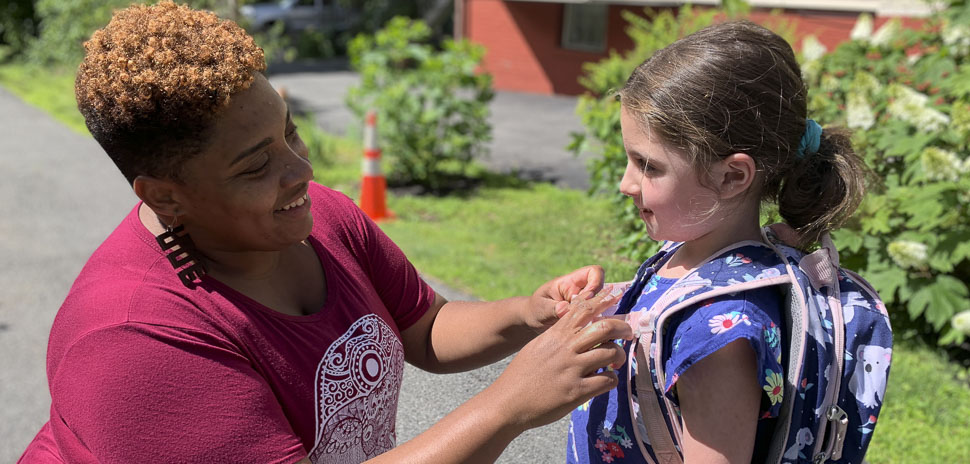
[Photo via Kidcaboo]
The heart of Kidcaboo is establishing teams of vetted “Driving Nannies.” Drivers get criminal background checks and use their own inspected vehicles with other requirements including at least three years of childcare experience and a clean driving record, the company said in a statement. Kidcaboo conducts in-person interviews for drivers and the vehicles have dual-facing cameras, so the firm can monitor and track its drivers, according to the statement.
The camera tech features artificial intelligence and software that tracks driver performance on metrics like distracted driving, erratic behavior, and even simply touching a mobile device while driving, the company noted.
Prospective drivers can apply via a separate Driving Nanny app.
“The concept of ‘famtech’ is a huge part of Kidcaboo’s DNA,” Lock said in the statement. “There’s so much potential for leveling the playing field for working parents, whose circumstances have hindered their professional growth. We have a strong sense of our clients and what they need to help their families thrive, and it’s exciting to be using technology to directly help them.”
![]()
Get on the list.
Dallas Innovates, every day.
Sign up to keep your eye on what’s new and next in Dallas-Fort Worth, every day.

